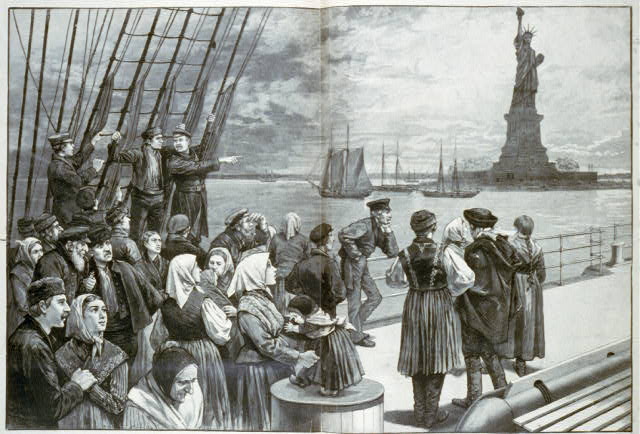On February 16, 2017, businesses across the United States closed as immigrants protested in “A Day without Immigrants”. The goal was to show how integral immigrants are to the fabric of American life. The protest came in part as a response to the Trump Administration’s most recent immigration policies including building a border wall, mass deportations, and banning travel from Muslim majority countries.
With 16.7% of the American workforce made up of foreign-born people, the absence of even a fraction of them made a huge impact on the U.S. economy, with businesses across the country shutting down in solidarity with the protest.
At a majority-Hispanic charter school in Austin, Texas, one teacher reported that only a fraction of her students arrived at class in an unprecedented display of unity with the protest.
Immigration is still the gateway to the American Dream. One woman tweeted,
“My parents are immigrants, and, thanks to them, I’m living the American Dream, reaching my goals, and thriving.”
Forbes has reported that 40% of Fortune 500 companies are founded by immigrants or their children. Prominent US entrepreneurs such as Google founder Sergey Brin, Yahoo founder Jerry Yang, and Microsoft CEO, Satyha Nadella, are immigrants.
The 40% of Fortune 500 companies founded by immigrants generated more than $1.7 million in revenue and employed 3.6 million people in the United States in 2010. In 2010, immigrant-founded small businesses generated more than $775 billion in sales and $100 billion in income and paid more than $126 billion in payroll taxes.
The U.S. economy has always been materially dependent on immigration. In 2013, immigrants added $1.6 trillion to the gross domestic product or GDP. Regardless of status, everyone contributes to the U.S. economy. Unauthorized immigrants contribute $11.64 billion in state and local taxes each year and support the Social Security system with $13 billion in payroll taxes.

Programs like DAPA and DACA, have allowed immigrants to take an even greater role in the formal U.S. economy. ITEP estimates that fully legalizing the current 11.3 million unauthorized immigrants would generate an additional $2.1 billion in state and local tax revenue each year. Providing a pathway to citizenship for all unauthorized immigrants would increase GDP by $1.2 trillion over 10 years and create 145,000 jobs annually.
Here are some ways additional ways immigrants contribute to the economy:
- Immigrants start business. Immigrants are more than 30% likely to start a business in the U.S. than non-immigrants.
- Immigrant owned businesses create jobs. In 2007, 4.7 billion people were employed by immigrant owned businesses.
- Immigrants are more likely to be self-employed. 7.5% of immigrants are self-employed vs. 6.6% of native born Americans.
- A greater percentage of immigrants are engineers and scientists and foreign-born inventors were credited with over 75% of patents issued in 2011.
- Immigrants boost demand for local goods. The purchasing power for Latinos exceeds $1.5 trillion.
- Immigrant acts reduce the deficit. The DREAM Act will reduce the federal deficit by $2.2 billion by 2020 due to increased tax revenues.
Protests like “A Day without Immigrants” are just the beginning of understanding the full impact immigrants have on our society. Beyond fiscal concerns, there is the cultural and artistic influence of other cultures which cannot be valued.
On the other hand, talk of walls and mass deportations run the risk of creating an isolated and un-innovative society that struggles in the world marketplace. Countries like Japan which have limited immigration show us how economies can stagnate for lack of diversity.
The National Academy of Sciences’ (NAS) report entitled The Economic and Fiscal Consequences of Immigration concluded that, “Immigration supplies workers, which increases GDP and has helped the United States avoid the fate of stagnant economies created by purely demographic forces – in particular, an aging (and, in the case of Japan, a shrinking) workforce.” The report goes on to say, “The contribution of immigrants to human and physical capital formation, entrepreneurship, and innovation are essential to long-run sustained economic growth.”
The facts are clear: America is built on innovation and immigration and needs immigrants to remain a successful and thriving player in the global economy.
